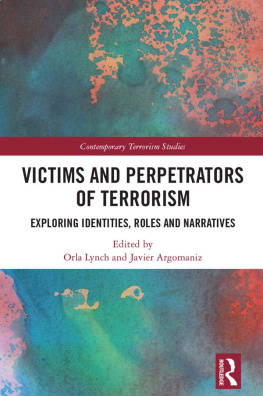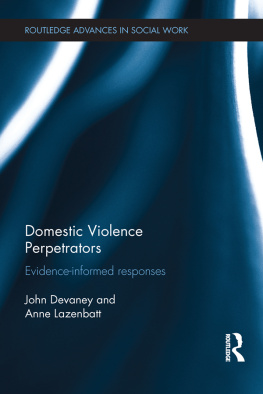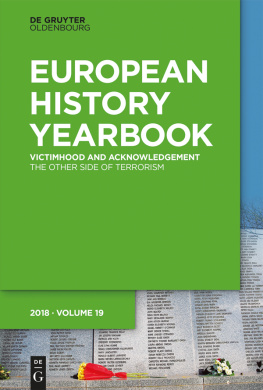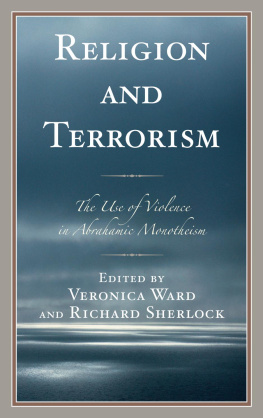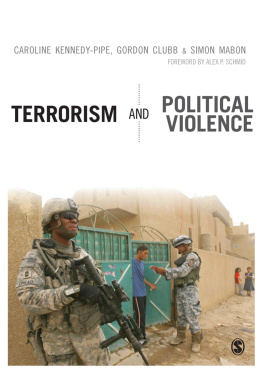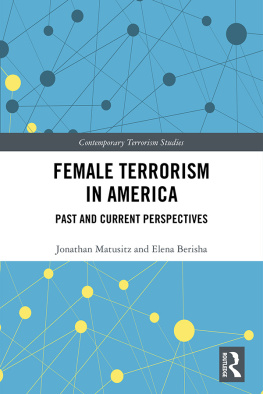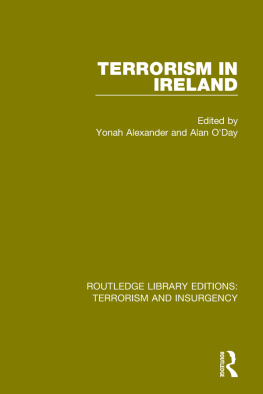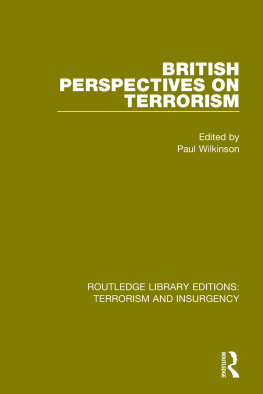Victims and Perpetrators of Terrorism
This volume examines how both victims and perpetrators of terrorism are relevant to our understanding of political violence.
While the perpetrators of political violence have been the subject of significant academic research, victims of terrorism and political violence have rarely featured in this landscape. In an effort to capture the vast complexity of terrorism, and to widen the scope of the agenda that informs terrorism research, this book presents a series of analyses that examines the role of the perpetrators, the experience of the victims, the public and media perceptions of both, and given the inherent intricacy of the phenomenon, how we might think about engaging with perpetrators in an effort to prevent further violence. By considering the role of the many actors who are central to our understanding and framing of terrorism and political violence, this book highlights the need to focus on how the interactivity of individuals and contexts have implications for the emergence, maintenance and termination of campaigns of political violence. The volume aims to understand not only how former perpetrators and victims can work in preventing violence in a number of contexts but also, more broadly, the narratives that support and oppose violence, the construction of victimisation, the politicisation of victimhood, the justifications for violence and the potential for preventing and encouraging desistance from violence.
This book will be of much interest to students of terrorism and political violence, victimology, criminology, security studies and IR in general.
Orla Lynch is Director of Postgraduate Criminology at University College Cork, Ireland, a fellow with Hedayah, Abu Dhabi, and co-author of The Psychological Processes of Terrorism (2018).
Javier Argomaniz is Lecturer in International Relations at the University of St Andrews, UK, and author of The EU and Counter-Terrorism: Politics, Polity and Policies after 9/11 (Routledge, 2011).
Contemporary Terrorism Studies
For a full list of titles in this series, please visit www.routledge.com
Understanding Lone Actor Terrorism
Past Experience, Future Outlook, and Response Strategies
Edited by Michael Fredholm
Hamas, Popular Support and War in the Middle East
Insurgency in the Holy Land
Richard Davis
Social Movement De-Radicalisation and the Decline of Terrorism
The Morphogenesis of the Irish Republican Movement
Gordon Clubb
Understanding Deradicalization
Methods, Tools and Programs for Countering Violent Extremism
Daniel Koehler
Assessing the War on Terror
Western and Middle Eastern Perspectives
Edited by Charles Webel and Mark Tomass
Understanding Boko Haram
Terrorism and Insurgency in Africa
Edited by James J. Hentz and Hussein Solomon
Reintegrating Jihadist Extremist Detainees
Helping Extremist Offenders Back into Society
Daan Weggemans and Beatrice de Graaf
Transnational Organized Crime and Jihadist Terrorism
Russian-Speaking Networks in Western Europe
Michael Fredholm
Victims and Perpetrators of Terrorism
Exploring Identities, Roles and Narratives
Edited by Orla Lynch and Javier Argomaniz
Victims and Perpetrators of Terrorism
Exploring Identities, Roles and Narratives
Edited by Orla Lynch
and Javier Argomaniz
First published 2018
by Routledge
2 Park Square, Milton Park, Abingdon, Oxon OX14 4RN
and by Routledge
711 Third Avenue, New York, NY 10017
Routledge is an imprint of the Taylor & Francis Group, an informa business
2018 selection and editorial material, Orla Lynch and Javier Argomaniz; individual chapters, the contributors
The right of the editors to be identified as the authors of the editorial material, and of the authors for their individual chapters, has been asserted in accordance with sections 77 and 78 of the Copyright, Designs and Patents Act 1988.
All rights reserved. No part of this book may be reprinted or reproduced or utilised in any form or by any electronic, mechanical, or other means, now known or hereafter invented, including photocopying and recording, or in any information storage or retrieval system, without permission in writing from the publishers.
Trademark notice: Product or corporate names may be trademarks or registered trademarks, and are used only for identification and explanation without intent to infringe.
British Library Cataloguing-in-Publication Data
A catalogue record for this book is available from the British Library
Library of Congress Cataloging-in-Publication Data
Names: Lynch, Orla, editor. | Argomaniz, Javier, editor.
Title: Victims and perpetrators of terrorism : exploring identities, roles and narratives / edited by Orla Lynch and Javier Argomaniz.
Description: Abingdon, Oxon ; New York, NY : Routledge, 2018. | Series: Contemporary terrorism studies | Includes bibliographical references and index.
Identifiers: LCCN 2017032800 | ISBN 9781138739550 (hardback) | ISBN 9781315182490 (ebook)
Subjects: LCSH: Victims of terrorism. | Terrorists. | Terrorism. | TerrorismPrevention.
Classification: LCC HV6431 .V496 2018 | DDC 363.325dc23
LC record available at https://lccn.loc.gov/2017032800
ISBN: 978-1-138-73955-0 (hbk)
ISBN: 978-1-315-18249-0 (ebk)
Typeset in Times New Roman
by Apex CoVantage, LLC
Contents
by Tim Wilson
ORLA LYNCH AND JAVIER ARGOMANIZ
AGATA SERRAN, ORLA LYNCH, JAVIER ARGOMANIZ AND CHERYL LAWTHER
ANNE-MARIE BALBI
SUSANNA VEZZADINI
PETER F. KELLY
ANNABELLE DE HEUS
CATHRIN RUPPE
JOHN F. MORRISON
SARAH MARSDEN
DOUGLAS WEEKS
TIM CHAPMAN
Genesis, and not aftermath, has tended to dominate the study of terrorism. Scholars, in other words, have long been far more preoccupied with Why Men Rebel (to borrow the strikingly gendered title of a classic 1970 study); and not with how both whole societies, and their individual members, cope afterwards. We know relatively little about the long-term social resonance of the terroristic violence that so preoccupies our governments, our media and, indeed, ourselves.
Easy stereotypes thus continue to thrive in an analytical vacuum about how victims should react to their experiences of political violence. At one end of the spectrum lies the automatic assumption that violence brutalises automatically: a view given perhaps its most forceful expression by W.H. Auden: I and all the public know/What all schoolchildren learn/Those to whom evil is done/Do Evil in return. How can we begin to reconcile such utterly centrifugal popular understandings?
To their enormous credit, the essays in Victims and Perpetrators of Terrorism suggest many profitable ways to advance understanding here. As the title indicates, the editorial decision to consider phenomena of victimhood and radicalisation between the covers of the same volume is a bold one; or as Orla Lynch and Javier Argomaniz put it with commendable academic delicacy in their introductory discussion, the claim to victimhood is often closely managed in the case of terrorism. But in the end the analytical dividends speak for themselves. We learn much comparatively about the conditions under which violence does, or does not, breed further violence. Above all, such a rich collection of case studies bears stark witness to the crucial mediating roles of context and culture in explaining social impacts and consequences of terrorism at local levels: a recurrent strength here is the space allowed for eloquent local voices (you only become victims when you are forgotten). Acts of terrorism, these essays and witnesses remind us uncomfortably, always happen somewhere

